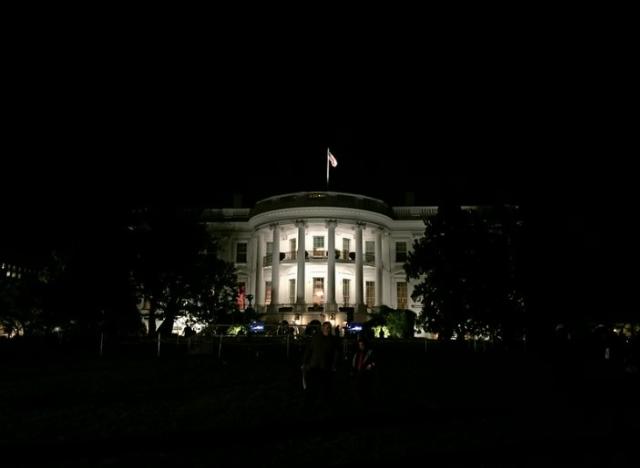Deep State Supporters Fear This Senator Is Advising Trump
from Russia Insider:

The Blob is freaking out that Rand Paul is helping Trump keep his campaign promises on war
“Welcome to the world of President Rand Paul,” blared the headline at The WashingtonPost. In the piece that followed, columnist Josh Rogin took President Donald Trump to task for reportedly listening to the Kentucky senator too much.
“Several U.S. officials and people who have spoken directly to Trump since his Syria decision tell me they believe that Paul’s frequent phone conversations with Trump, wholly outside the policy process, are having an outsize influence on the president’s recent foreign policy decisions,” Rogin writes. “Officials told me that, throughout the national security bureaucracy, everyone is aware that Paul’s voice is one to which the president is paying increasing attention.”
“The existing concern over Paul’s influence on Russia policy has now boiled over with respect to Syria,” Rogin worries. He also warns, “In the run-up to 2020, Trump should realize that most Republicans—and most Americans—favor a robust U.S. foreign policy.”
This is Washington groupthink disguised as mainstream consensus. Polling this year has showed that most Americans are opposed to “robust” endless wars. Trump shouldn’t fear Republicans becoming disenchanted with his recent foreign policy decisions: according to a recent Morning Consult poll, the president’s support within his party remains sky high.
The idea that promoting a more restrained foreign policy is somehow a political liability reflects more what elites think voters should believe, not what they necessarily believe.
But why let reality get in the way of a good Beltway narrative? “Ideally, Trump will soon realize that adopting Paul’s vision for the future of U.S. foreign policy is not only dangerous for our national security but bad politics as well,” Rogin insists.
Is this even remotely true given what we know about America’s recent foreign policy and political history?
That Trump has now roundly bucked the advice of virtually all of his foreign policy advisors—so much so that his secretary of defense resigned in protest—is certainly unprecedented in modern American politics.
That’s the point.
To date, Trump has agreed to troop commitments in Syria and military build-ups in Afghanistan at the behest of his inner circle. This month, after two years of taking their advice with no endgame in sight, he essentially said “no more.”
This is consistent with what Trump promised during the election. It’s consistent with what Rand Paul has advocated during his time in Congress.
It’s also what Barack Obama once promised.
As The New York Times reported, “However precipitously Mr. Trump acted, he was channeling the same reservations that Mr. Obama had. Both presidents questioned the open-ended nature of these campaigns, pressed their advisers to define success, and faced the problem of ‘mission creep.’”
Obama campaigned on resisting Washington’s longstanding predilection to rush into war, particularly in Iraq, and promised to challenge the status quo. But a main difference between Obama and Trump, or at least Trump’s actions this month, is that Obama was never able to fully break from Washington foreign policy consensus, which some progressives lamented.
Anti-war rhetoric can be tolerated. Following through never will be. “Criticizing past U.S. policy at a campaign rally is one thing,” Rogin observed of Trump’s speech to American troops in Iraq at Christmas. “The commander in chief telling U.S. soldiers in a war zone that he has lost faith in their generals, and is therefore changing their mission, is another.”
“Trump’s Iraq trip moved U.S. foreign policy one big step in Paul’s direction,” Rogin writes.
And why wouldn’t the president move foreign policy in Paul’s direction, considering it is also the direction Trump himself had promised? Trump reportedly seeks counsel from Paul because Paul is one of the few in Congress who agrees with him.
This isn’t crazy or reckless or subterfuge or whatever other barbs foreign policy elites will continue to come up with. Again, it’s consistent.
It’s also rational. “These commanders have been singing this tune year after year for 17 years of occupation, and secretaries of Defense have kept agreeing with them,” Andrew Sullivan writes regarding the U.S. presence in Afghanistan. “Trump gave them one last surge of troops—violating his own campaign promise—and we got nowhere one more time. It is getting close to insane.”
Read More @ Russia-Insider.com
Loading...



